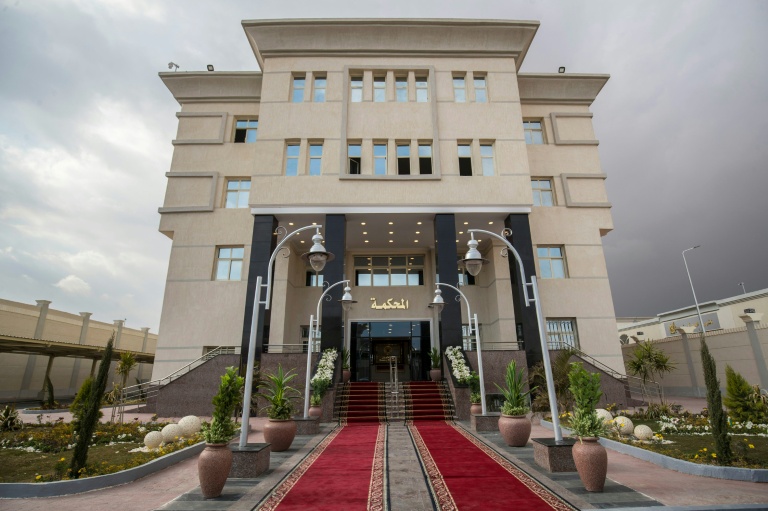Egypt is poised to adopt a new law aimed at overhauling the judicial process, but human rights groups warn it could entrench long-standing abuses including arbitrary detention, travel bans and expedited trials.
The legislation, currently awaiting approval by President Abdel Fattah al-Sisi, is being promoted by the government as a step toward streamlining legal procedures, from arrest to trial.
Foreign Minister Badr Abdelatty has told the UN Human Rights Council it would bring a “legislative revolution to criminal justice” in Egypt.
Ihab al-Tamawy, the head of the parliamentary subcommittee charged with drafting the new code, told AFP it “introduces a set of new guarantees” on Egypt’s notorious pretrial detention system, as well as the role of the public prosecution.
But critics say the bill risks codifying repressive practices that have long eroded due process in the country.
According to rights defenders, the law expands the powers of police and prosecutors and limits the role of defence lawyers, undermining judicial oversight and the right to a fair trial.
In one of the new provisions that have come under scrutiny, public prosecutors will be able to order travel bans without a warrant “in cases of emergency”.
The law will also allow police to enter homes without an arrest warrant in cases of “distress” or “danger”, which are not clearly defined.
In April, UN rights chief Volker Turk “raised concerns” over the law and called on Sisi to “consider carefully” before signing it into force, “to ensure that it fully complies with Egypt’s international human rights obligations”.
– Right to fair trial –
Egypt currently ranks 135th out of 142 countries on the World Justice Project’s Rule of Law Index.
In the latest UN review of its rights record in January, Egypt faced accusations of “systemic and widespread” rights violations, including torture, enforced disappearances and unfair trials.
In recent years, Egypt has been accused of formalising into normal law exceptional measures previously allowed in states of emergency.
According to prominent human rights lawyer Khaled Ali, the law “does not truly combat corruption, expands the powers granted to the police and prosecution and undermines the role of defence lawyers,” which he said is “essential to a fair trial”.
Along with 15 other independent lawyers, Ali submitted 176 proposed amendments to the law, none of which were adopted.
Mahmoud Shalaby, Egypt researcher at Amnesty International, told AFP the bill “codifies practices that were already taking place outside the boundaries of the law, and grants them legitimacy in an attempt to improve Egypt’s image”.
According to Karim Ennarah, research director at the Egyptian Initiative for Personal Rights (EIPR), the new changes will come at the expense of investigations, defendants and their lawyers.
Under the new law, defence lawyers can be denied access to case files and witnesses — “practices already common, but that will now become legal,” Ennarah said.
– ‘Recycling’ –
The law will also expand remote trials, which Ennarah describes as “rushed” virtual hearings, where dozens of jailed defendants are corralled behind a screen on a video call with a judge.
Remote trials “undermine two fundamental principles of a fair trial”, according to Ennarah, namely “the defendant’s right to meet privately with their lawyer, and their right to appear before a judge” to assess any harm or abuse inflicted upon them.
Egypt is routinely criticised for the widespread use of pretrial detention, a phenomenon that proponents say is addressed under the new law.
While the maximum period for remand detention will be reduced from 24 to 18 months, Amnesty International has warned the law “provides no safeguards against abusive prolonged pretrial detention”.
According to Shalaby, many of Egypt’s estimated tens of thousands of political prisoners are victims of a practice known as “recycling” detainees.
Under the much-maligned “revolving door policy”, prisoners are often handed new charges instead of being released, restarting the clock on their remand period.
Another issue, he says, is that when the law goes into effect, citizens will no longer be able to sue “in case of violations during their arrest or detention”.
In 2024, EIPR documented 10 cases of torture-related deaths in detention facilities.
Rights groups regularly report cases of medical neglect, abuse and overcrowding in Egyptian prisons.
lom/nda-sof/bha/ami/jsa/tc

